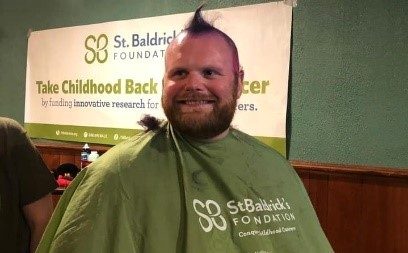Jon Bardahl, DO, is currently training in pediatric medicine at OSF HealthCare. In the upcoming academic year starting in July 2020, Dr. Bardahl will be starting his fellowship in pediatric hematology-oncology at Duke University. Prior to medical school, Dr. Bardahl received his bachelor’s degree in biology from Governor’s State University and earned his osteopathic medical degree from Midwestern University in Chicago, Illinois. Throughout the years, Dr. Bardahl has been a consistent advocate for osteopathic medicine, and has been highly involved with the NBOME as a Resident Ambassador helping to spread information regarding COMLEX-USA to various student groups and stakeholder through social media.
You’ve almost finished your residency. We hear a fellowship is your next step, tell us about that–what made you choose hematology-oncology as a subspecialty?
I’m excited to be starting Pediatric Hematology-Oncology fellowship this July at Duke Children’s Hospital. I have been interested in cancer biology for some time, and have been lucky enough to be able to pursue it. Prior to medical school I conducted research on a protein expressed by Epstein-Barr virus and its influence when it comes to tumor development in certain cancers. While in medical school, I got involved in the St. Baldrick’s Foundation which helps raise money for childhood cancer research in exchange for participants shaving their heads. In residency I truly developed an appreciation for the field and loved the continuity with patients and their families, the pathology, the opportunity for research, and advocacy opportunities involved in the field.
Any advice for DO students and residents who might be thinking about completing a fellowship?
I think the biggest advice I would give any upcoming student or resident is to find a mentor and “pick” their brain. I have had so many mentors along the way that have influenced me both personally and professionally and I’m so grateful for the lessons I have learned and the advice they have given me.
You only took COMLEX-USA when you applied to residency – what was your thinking about that?
I’m a proud DO and fully support COMLEX-USA! I was only interested in residency programs that supported COMLEX-USA as well so the USMLE was never something I considered.
How would you advise DO students today in considering a specialty?
Students should try to keep an open mind when it comes to medicine. If they have a specialty they are interested in, they can identify mentors or research opportunities which may be helpful when applying to residency programs.
What about applying to residency?
Here are some things that I would recommend doing:
- Perform well on your clinical rotations to obtain the best LOR you can
- Get involved in various organizations (e.g., SOMA, COSGP, and AOA)
- Join advocacy opportunities to grow as a leader and well- rounded physician
- Do research–it’s always a plus!
How would you advise DO students considering programs that might not be as familiar or accept COMLEX-USA scores?
Reach out to programs and ask them! If a program is unfamiliar you can always supply them with resources from the NBOME website or notify NBOME so they can advocate on your behalf.
Applying to residency has gotten so stressful–students are applying to more programs every year. How many programs did you apply to and interview at?
I applied to 20-30 programs for both residency and fellowship and I interviewed at 10-12 programs.
Did you do an audition rotation at your residency or fellowship program?
I did not. Audition rotations are a wonderful opportunity to learn and get a “feel” for a program, but it’s not mandatory. I have loved training at my current residency program and don’t think an audition rotation would have changed that.
What are some tips you would give DO students who are preparing to apply to residency?
These are some of the things that worked for me, and I hope they help others as well:
- Stay on top of your deadlines
- Reach out to LOR writers early
- Review your CV for gaps
- Start your personal statement early and have others review it
- Reach out to upperclassmen for advice
- Continue to perform well on your clinical rotations
- Take time to “recharge” and find balance in your life
Were you always interested in pediatrics? When did you know that’s what you wanted to do and how did you decide that’s what you wanted to do?
Pediatrics was at the top of my list! I did consider family medicine at one point as well, but decided to pursue pediatric medicine after my 3rd year core rotation in pediatrics. I have always been interested in pathology and academic medicine, and wanted the opportunity to specialize in Hematology-Oncology to provide continuity of care by working with patients and their parents.

